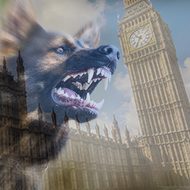
The Government will respond to the 118,000 strong e-petition.
On Monday 5 July, MPs will debate a petition asking for a replacement of breed specific legislation with a new statutory framework.
The debate will be opened by Elliot Colburn, Petitions Committee member, and Victoria Prentis, a Minister at DEFRA, will respond on the Government's behalf.
Gaining over 118,000 signatures, the original petition states:
"Breed Specific Legislation fails to achieve what Parliament intended, to protect the public. It focuses on specific breeds, which fails to appreciate a dog is not aggressive purely on the basis of its breed. It allows seizure of other breeds, but the rules are not applied homogeneously by councils.
“We need a system that focuses on the aggressive behaviour of dogs, and the failure of owners to control their dog, rather than the way a dog looks.”
The petition calls on the Government to reconsider a licensing system, stating: “The framework must be applied by local authorities the same, whereas currently some destroy dogs with no court order. It must be much more strictly controlled than it is currently. The system needs to be fairer for all, dogs and humans. We are touched by cases of people committing suicide over the current system.”
Responding negatively to the petition, the Government said: “The Government considers that prohibition on the four types of fighting dog under Dangerous Dogs Act 1991 should remain in place. This is supported by police who are responsible for enforcing the Act.”
British vets are joining the call for a 'deed not breed' approach, and the BVA and BSAVA recently updated their joint policy position on the 1991 Dangerous Dogs Act to reflect this.
Among the BVA and BSAVA's recommendations are; repealing section 1 of the Dangerous Dogs Act (1991), effectively enforcing and consolidating existing dog control legislation in the UK, establishing a centralised dog biting incident database, and promoting responsible ownership and safe dog-human interactions.
Lasting 90 minutes, the debate will take place in Westminster Hall from 6.15pm, and will be available to view on Parliament TV and YouTube



 The RCVS has announced a new version of its 1CPD mobile app, with enhanced features for veterinary surgeons and veterinary nurses to record their continuing professional development.
The RCVS has announced a new version of its 1CPD mobile app, with enhanced features for veterinary surgeons and veterinary nurses to record their continuing professional development.